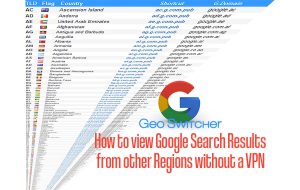Zero-Click Searches: Adapting SEO Strategies for Changing Search Engine Behavior

Search engine behavior is evolving, and with it, the way users interact with search results. The rise of zero-click searches has significantly altered the SEO landscape, prompting a shift in strategies for online visibility and traffic acquisition. In this blog post, we’ll delve into the concept of zero-click searches, explore their impact on traditional SEO approaches, and discuss adaptable strategies to align with this changing search environment.
As search engines aim to provide immediate answers to user queries directly on the search results page, the prevalence of zero-click searches has increased. These searches occur when users obtain the information they need without clicking through to any specific website, relying on featured snippets, knowledge panels, and other SERP features. This phenomenon presents both challenges and opportunities for website owners and digital marketers striving to maintain and improve their online presence.
Understanding the implications of zero-click searches is pivotal for businesses and individuals seeking to enhance their SEO performance. By adapting strategies to accommodate this shifting search behavior, organizations can proactively position themselves for visibility and engagement in the fast-paced digital landscape. In this dynamic SEO landscape, embracing adaptive techniques becomes a game-changer in navigating the evolving search engine terrain and sustaining online relevance and traffic flow.
Understanding Zero-Click Searches
In today’s evolving search landscape, zero-click searches have become a pivotal aspect of SEO strategies. These searches occur when users obtain the information they need directly from the search engine results page (SERP) without clicking through to any specific website. Understanding the various features associated with zero-click searches is crucial for adapting SEO practices to the changing search behavior.
Featured Snippets
Featured snippets, also known as position zero, are concise answers extracted from web pages that are prominently displayed at the top of the organic search results. These snippets aim to provide users with immediate and relevant information in response to their queries. While securing a featured snippet can lead to enhanced visibility, it can also impact organic traffic as users may not click through to the website after obtaining the required information from the snippet itself.
Knowledge Panels
Knowledge panels are information boxes that appear on the SERP, providing users with a summarized overview of a specific entity, such as a person, place, or thing. These panels draw information from various sources and present it in a structured format, offering users a comprehensive understanding without the need to visit individual websites. Understanding the role of knowledge panels in zero-click searches is essential for optimizing content to appear in these panels and enhance brand visibility.
Other Zero-Click SERP Features
Aside from featured snippets and knowledge panels, search engines utilize various other zero-click SERP features to deliver instant answers to user queries. These include direct answers, which provide immediate responses to specific questions; image carousels, displaying a series of relevant images; and video carousels, showcasing videos related to the search query. Incorporating strategies to appear in these zero-click features can significantly impact a website’s visibility and user engagement, necessitating proactive adaptation in SEO approaches.
By leveraging the potential of featured snippets, knowledge panels, and other zero-click SERP features, businesses can embark on a quest to enhance their online presence and provide seamless access to valuable information for users in this fast-paced digital landscape.
Impact on SEO Strategies
As search engines continue to evolve, zero-click searches have a significant impact on traditional SEO strategies, requiring a proactive and adaptive approach to maintain visibility and relevance.
Keyword Research and Targeting
In response to zero-click searches, keyword research and targeting must adapt to align with user intent and context. Instead of solely focusing on high-volume keywords, SEO strategies now need to incorporate long-tail keywords, questions, and conversational phrases that cater to users seeking quick answers. Understanding the search intent behind each query becomes pivotal, allowing for the creation of content that directly addresses users’ needs.
Content Optimization for Featured Snippets
Optimizing content for featured snippets, positioned above the organic search results, is essential in increasing visibility in zero-click SERP features. To achieve this, content creators must structure their content with succinct and informative answers to common queries, ensuring that the content is formatted in a way that search engines can easily extract and display as a featured snippet. This can include using bullet points, numbered lists, and concise paragraphs to enhance the likelihood of being featured.
Structured Data and Schema Markup
In the realm of zero-click searches, structured data and schema markup play a vital role in enhancing visibility within SERP features. By providing search engines with additional context about the content, websites can improve their chances of being included in knowledge graphs, carousels, and other rich snippets. Implementing structured data not only enhances the appearance of search results but also increases the probability of being showcased as a relevant result for zero-click searches.
Adapting SEO strategies to the implications of zero-click searches necessitates a shift towards user-focused, informative, and easily accessible content. By integrating these adjustments, websites can leverage the evolving search landscape, ensuring their continued visibility and relevance amidst changing user behaviors.
Adapting to Zero-Click Searches
In today’s evolving digital landscape, adapting to zero-click searches is pivotal for businesses aiming to maintain a strong online presence and drive traffic to their websites. With search engine behavior changing rapidly, it’s essential to leverage SEO strategies that align with the increasing prevalence of zero-click searches.
Enhancing Local SEO for Zero-Click Searches
Enhancing local SEO is a game-changer when it comes to capturing zero-click opportunities. With the growing number of users seeking local information, businesses can optimize for zero-click searches in local contexts by ensuring their Google My Business profiles are up to date, obtaining positive customer reviews, and including relevant local keywords in their content. Moreover, providing accurate business information, such as address, phone number, and operating hours, increases the likelihood of appearing in local zero-click search results.
Leveraging Long-Tail Keywords and Question-Based Queries
Leveraging long-tail keywords and question-based queries is imperative for capturing the attention of users engaging in zero-click searches. Long-tail keywords, which are more specific and have lower search volume, can help businesses rank for niche queries and attract users with high purchase intent. Crafting content that answers commonly asked questions within the industry not only enhances visibility in zero-click search results but also establishes authority and trust with the audience.
Creating Comprehensive and Authoritative Content
Creating comprehensive and authoritative content is a proactive approach to catering to zero-click search intent. By offering in-depth and detailed information on relevant topics, businesses can increase the chances of their content being featured in featured snippets and knowledge panels, catering to users’ needs directly on the search engine results page. Furthermore, integrating structured data markup on web pages can provide search engines with additional context, increasing the likelihood of content being selected for zero-click search displays.
By embracing these best practices and adapting SEO strategies to align with the changing search engine behavior, businesses can navigate the zero-click search landscape with confidence and establish a resilient online presence that captures user intent effectively.
Future Outlook and Takeaways
In the future, zero-click searches are expected to continue evolving as search engines strive to provide users with immediate answers. The prevalence of featured snippets, knowledge graphs, and voice search will likely contribute to the rise of zero-click searches, altering the traditional search landscape significantly. As technology advances and user behaviors shift, SEO strategies will need to adapt to accommodate these changes.
Adapting to Voice Search
With the increasing usage of voice assistants such as Siri, Alexa, and Google Assistant, optimizing for voice search will become paramount. SEO professionals will need to focus on long-tail keywords, natural language optimization, and structured data to enhance visibility in voice search results.
Embracing Featured Snippets
Featured snippets will continue to dominate search results, providing users with immediate answers to their queries. SEO strategies should center on formatting content to address common questions concisely, aiming to secure the coveted position zero in search engine results.
The Importance of Entity-Based SEO
As search engines increasingly prioritize understanding user intent and context, entity-based SEO will gain prominence. By structuring content around entities and their relationships, websites can enhance their relevance and authority, catering to the evolving algorithms that govern zero-click searches.
Conclusion
In conclusion, the SEO landscape is undergoing a significant transformation with the proliferation of zero-click searches. Embracing these changes and proactively adjusting SEO strategies will be vital for maintaining visibility and relevance in the evolving search engine environment. By focusing on voice search optimization, featured snippets, and entity-based SEO, businesses and digital marketers can position themselves to thrive amidst the changing dynamics of search engine behavior. Adapting to these shifts will be crucial for achieving sustainable success in the ever-evolving digital realm.











